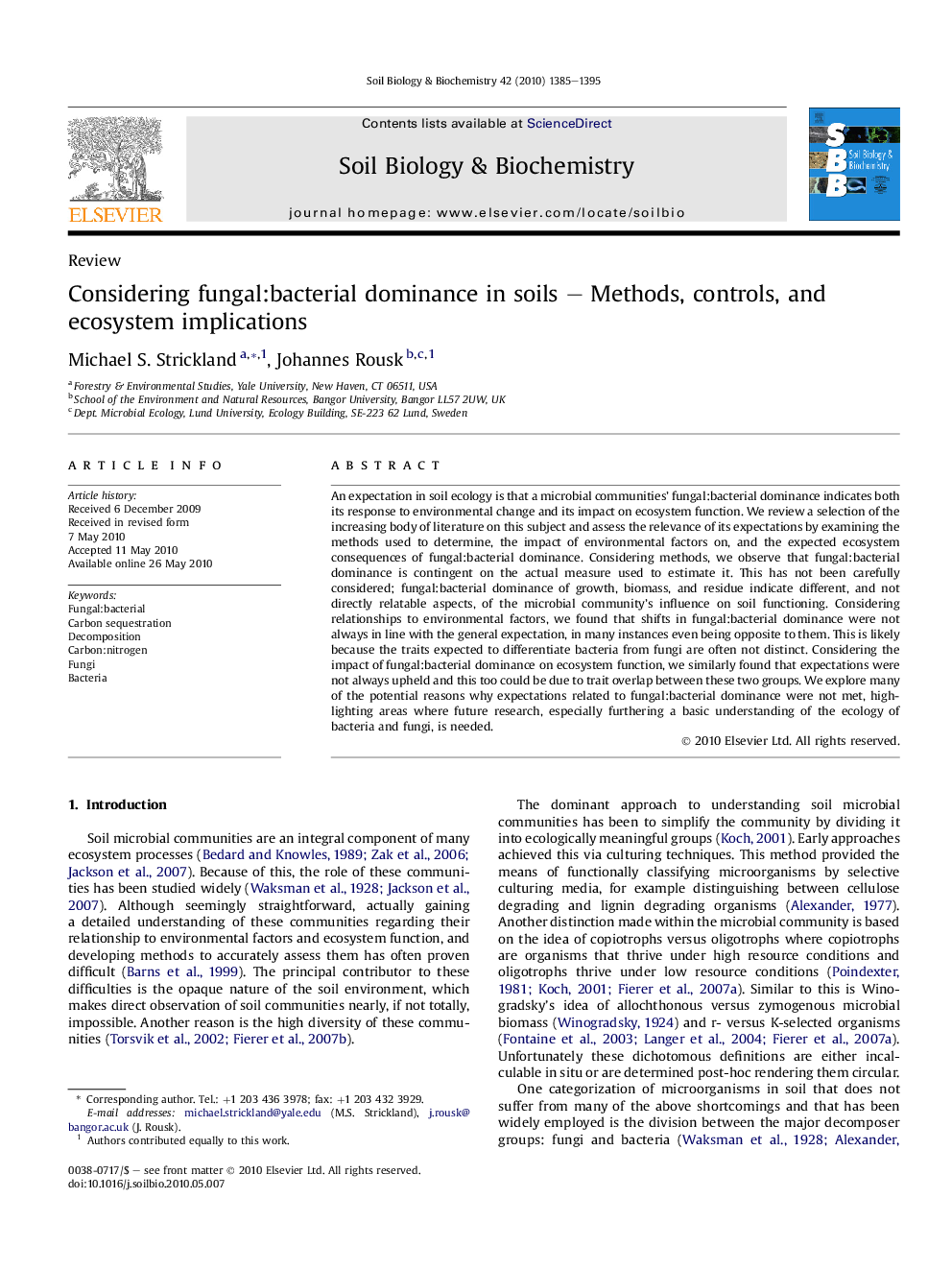| Article ID | Journal | Published Year | Pages | File Type |
|---|---|---|---|---|
| 10846107 | Soil Biology and Biochemistry | 2010 | 11 Pages |
Abstract
An expectation in soil ecology is that a microbial communities' fungal:bacterial dominance indicates both its response to environmental change and its impact on ecosystem function. We review a selection of the increasing body of literature on this subject and assess the relevance of its expectations by examining the methods used to determine, the impact of environmental factors on, and the expected ecosystem consequences of fungal:bacterial dominance. Considering methods, we observe that fungal:bacterial dominance is contingent on the actual measure used to estimate it. This has not been carefully considered; fungal:bacterial dominance of growth, biomass, and residue indicate different, and not directly relatable aspects, of the microbial community's influence on soil functioning. Considering relationships to environmental factors, we found that shifts in fungal:bacterial dominance were not always in line with the general expectation, in many instances even being opposite to them. This is likely because the traits expected to differentiate bacteria from fungi are often not distinct. Considering the impact of fungal:bacterial dominance on ecosystem function, we similarly found that expectations were not always upheld and this too could be due to trait overlap between these two groups. We explore many of the potential reasons why expectations related to fungal:bacterial dominance were not met, highlighting areas where future research, especially furthering a basic understanding of the ecology of bacteria and fungi, is needed.
Related Topics
Life Sciences
Agricultural and Biological Sciences
Soil Science
Authors
Michael S. Strickland, Johannes Rousk,
